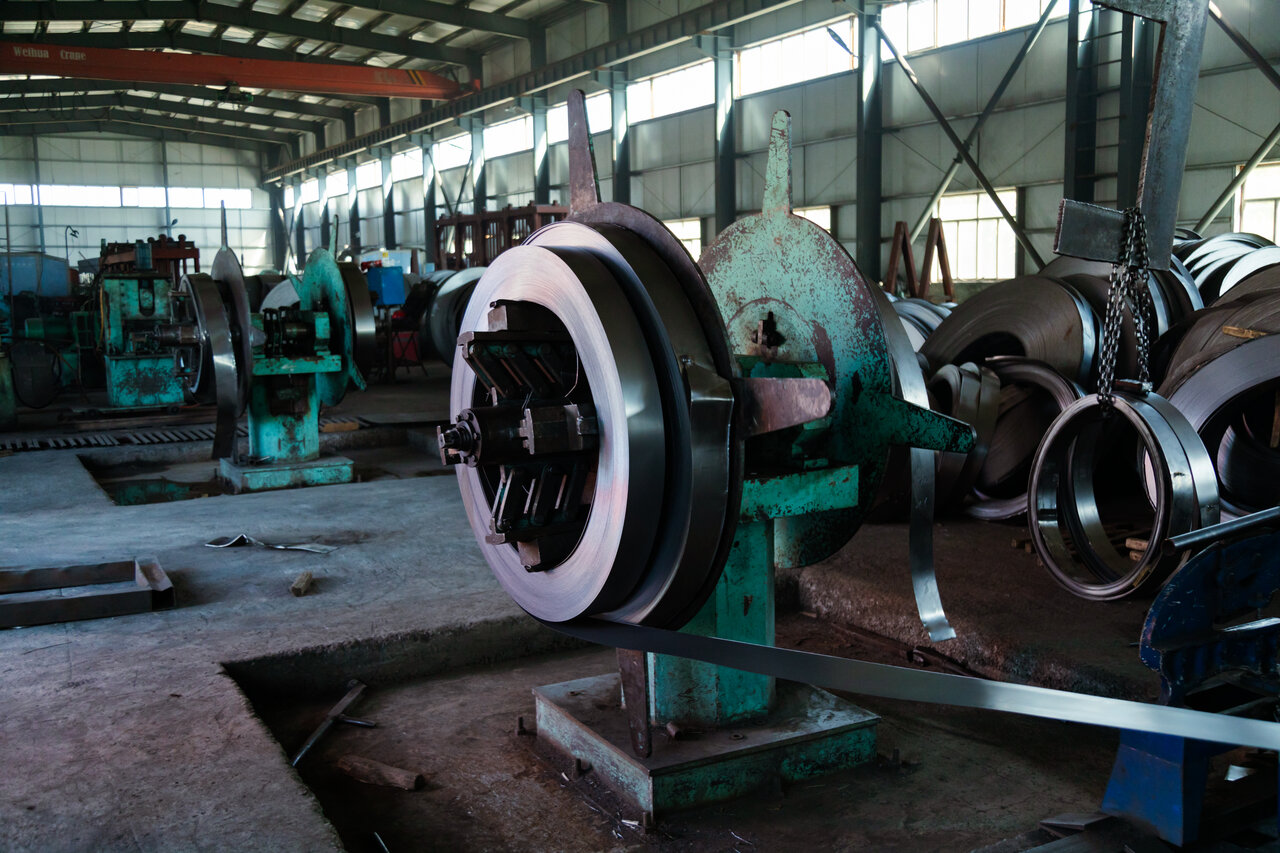As discussion about climate change and limited natural resources continue to mount, sustainable manufacturing practices are becoming increasingly vital. Modern industries are focused not only on the need to maximize profits and stay competitive but also on the pressing need to reduce environmental impact and conserve resources. Custom roll forming, as a versatile and efficient fabrication method,plays a significant role in promoting sustainable manufacturing across a wide variety of industries and applications. At Roller Die + Forming, we are committed to providing high-quality, competitively priced custom roll formed products while embracing sustainable practices
There are many ways in which custom roll forming can help advance environmental initiatives by promoting more efficient use of materials, adopting greener components, and demonstrating the benefits of adopting sustainable manufacturing practices in various industries.Additionally, we will touch upon Roller Die + Forming’s efforts to reduce our own environmental footprint and foster more eco-friendly operations.
Material Optimization in the Roll Forming Process
One of the key environmental benefits of custom roll forming lies in its efficient use of materials. By producing parts with a constant cross-sectional profile, the roll forming process minimizes material waste and optimizes the use of resources. This material optimization contributes to sustainability by:
- Reducing Material Waste: Roll forming allows manufacturers to control material usage more accurately, resulting in minimized scrap and waste during production.
- Conserving Resources: Efficient material utilization promotes the conservation of finite resources, such as metals like steel and aluminum, and helps reduce the industry’s environmental footprint.
- Recyclable Materials: Roll formed products are often made from recyclable metals, which can be repurposed at the end of their life cycle, further supporting sustainable manufacturing processes.
Energy Efficiency in Roll Forming Operations
Another key aspect of sustainable manufacturing is energy efficiency. Custom roll forming is an energy-efficient fabrication method, as evidenced by the following factors:
- Cold Forming Process: Unlike hot forming methods that require substantial energy for heating raw materials, roll forming is a cold forming process that does not necessitate excessive energy expenditure.
- Inline Processing: Roll forming can incorporate cutting, punching, and other secondary operations inline, eliminating the need for additional, separate processes that may consume more energy.
- Automated Production: Roll forming is often highly automated, enhancing production efficiency, and resulting in lower energy consumption overall.
Incorporating Sustainable Components and Materials
Custom roll forming can incorporate sustainable components and materials, like recycled or green building materials, promoting more sustainable manufacturing practices across industries. Here are some ways roll forming can support the use of sustainable materials:
- Recycled Content: By using recycled metals, such as steel or aluminum, in custom roll-formed products, industries are minimizing their environmental footprint and conserving resources.
- Eco-Friendly Finishes: Roll forming can accommodate a variety of eco-friendly and sustainable finishes, such as low-VOC coatings, further contributing to environmentally responsible manufacturing.
- Responsibly Extracted Materials: Roll forming can make use of responsibly sourced metals and components that adhere to sustainable mining and extraction practices, reducing the environmental impact of raw material procurement.
The Potential for Driving Sustainable Manufacturing Across Industries
As a versatile and efficient fabrication method, custom roll forming helps sustainable manufacturing initiatives across a wide variety of industries, including the following examples:
- Construction: The use of roll formed products made with recycled content and eco-friendly finishes in construction projects can contribute to more sustainable building practices and minimize environmental impact.
- Automotive: By integrating lightweight and energy-efficient roll-formed components into vehicle designs, automotive manufacturers can work towards reducing fuel consumption and emissions.
- Renewable Energy: Roll forming can produce components for solar power infrastructure, promoting clean and renewable energy production while utilizing sustainable materials.
- Aerospace and Transportation: Utilizing lightweight roll-formed components produced with sustainable materials can contribute to reduced fuel consumption and greenhouse gas emissions in the aerospace and transportation sectors.
Embracing Sustainability in Custom Roll Forming for a Greener Future
The custom roll forming industry plays a crucial role in promoting sustainable manufacturing practices. By optimizing material usage, improving energy efficiency, limiting manufacturing waste, incorporating eco-friendly materials, and driving sustainability across various industries, roll forming can help manufacturers minimize their environmental footprint.
At Roller Die + Forming, we recognize the importance of adopting sustainable manufacturing practices in today’s environmentally conscious world. Our focus remains on providing high-quality, competitively priced custom roll formed products while embracing environmentally responsible methods. If you’re interested in learning more about our roll forming capabilities, reach out to speak to a member of our experienced sales team today.

